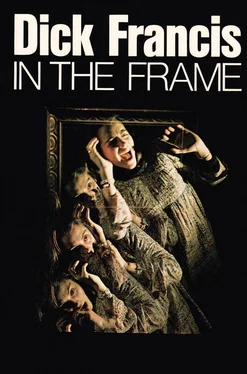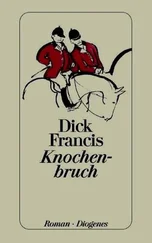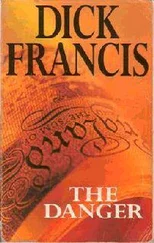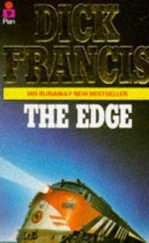We flew south to Melbourne the following morning, looking down on the Snowy Mountains en route and thinking our own chilly thoughts. Sarah’s disapproval from the seat behind froze the back of my head, but she had refused to stay in Sydney. Jik’s natural bent and enthusiasm for dicey adventure looked like being curbed by love, and his reaction to danger might not henceforth be uncomplicatedly practical. That was, if I could find any dangers for him to react to. The Sydney trail was dead and cold, and maybe Melbourne too would yield an un-looked-at public Munnings and a gone-away private gallery. And if it did, what then? For Donald the outlook would be bleaker than the strange puckered ranges sliding away underneath.
If I could take home enough to show beyond doubt that the plundering of his house had its roots in the sale of a painting in Australia, it should get the police off his neck, the life back to his spirit, and Regina into a decent grave.
If.
And I would have to be quick, or it would be too late to matter. Donald, staring hour after hour at a portrait in an empty house... Donald, on the brink.
Melbourne was cold and wet and blowing a gale. We checked gratefully into the warm plushy bosom of the Hilton, souls cossetted from the door onwards by rich reds and purples and blues, velvety fabrics, copper and gilt and glass. The staff smiled. The lifts worked. There was polite shock when I carried my own suitcase. A long way from the bare boards of home.
I unpacked, which is to say, hung up my one suit, slightly crumpled from the squashy satchel, and then went to work again on the telephone.
The Melbourne office of the Monga Vineyards Proprietary Limited cheerfully told me that the person who dealt with Mr Donald Stuart from England was the managing director, Mr Hudson Taylor, and he could be found at present in his office at the vineyard itself, which was north of Adelaide. Would I like the number?
Thanks very much.
‘No sweat,’ they said, which I gathered was Australian shorthand for ‘It’s no trouble, and you’re welcome.’
I pulled out the map of Australia I’d acquired on the flight from England. Melbourne, capital of the state of Victoria, lay right down in the south-east corner. Adelaide, capital of South Australia, lay about four hundred and fifty miles north west. Correction, seven hundred and thirty kilometres: the Australians had already gone metric, to the confusion of my mental arithmetic.
Hudson Taylor was not in his vineyard office. An equally cheerful voice there told me he’d left for Melbourne to go to the races. He had a runner in the Cup. Reverence, the voice implied, was due.
Could I reach him anywhere, then?
Sure, if it was important. He would be staying with friends. Number supplied. Ring at nine o’clock.
Sighing a little I went two floors down and found Jik and Sarah bouncing around their room with gleeful satisfaction.
‘We’ve got tickets for the races tomorrow and Tuesday,’ he said, ‘And a car pass, and a car. And the West Indies play Victoria at cricket on Sunday opposite the hotel and we’ve tickets for that too.’
‘Miracles courtesy of the Hilton,’ Sarah said, looking much happier at this programme. ‘The whole package was on offer with the cancelled rooms.’
‘So what do you want us to do this afternoon?’ finished Jik expansively.
‘Could you bear the Arts Centre?’
It appeared they could. Even Sarah came without forecasting universal doom, my lack of success so far having cheered her. We went in a taxi to keep her curled hair dry.
The Victoria Arts Centre was huge, modern, inventive and endowed with the largest stained-glass roof in the world. Jik took deep breaths as if drawing the living spirit of the place into his lungs and declaimed at the top of his voice that Australia was the greatest, the greatest, the only adventurous country left in the corrupt, stagnating, militant, greedy, freedom-hating, mean-minded, strait-jacketed, rotting, polluted world. Passers-by stared in amazement and Sarah showed no surprise at all.
We ran the Munnings to earth, eventually, deep in the labyrinth of galleries. It glowed in the remarkable light which suffused the whole building; the Departure of the Hop Pickers , with its great wide sky and the dignified gypsies with their ponies, caravans and children.
A young man was sitting at an easel slightly to one side, painstakingly working on a copy. On a table beside him stood large pots of linseed oil and turps, and a jar with brushes in cleaning fluid. A comprehensive box of paints lay open to hand. Two or three people stood about, watching him and pretending not to, in the manner of gallery-goers the world over.
Jik and I went round behind him to take a look. The young man glanced at Jik’s face, but saw nothing there except raised eyebrows and blandness. We watched him squeeze flake white and cadmium yellow from tubes on to his palette and mix them together into a nice pale colour with a hogshair brush.
On the easel stood his study, barely started. The outlines were there, as precise as tracings, and a small amount of blue had been laid on the sky.
Jik and I watched in interest while he applied the pale yellow to the shirt of the nearest figure.
‘Hey,’ Jik said loudly, suddenly slapping him on the shoulder and shattering the reverent gallery hush into kaleidoscopic fragments, ‘You’re a fraud. If you’re an artist I’m a gas-fitter’s mate.’
Hardly polite, but not a hanging matter. The faces of the scattered onlookers registered embarrassment, not affront.
On the young man, though, the effect was galvanic. He leapt to his feet, overturning the easel and staring at Jik with wild eyes: and Jik, with huge enjoyment put in the clincher.
‘What you’re doing is criminal ,’ he said.
The young man reacted to that with ruthless reptilian speed, snatching up the pots of linseed and turps and flinging the liquids at Jik’s eyes.
I grabbed his left arm. He scooped up the paint-laden palette in his right and swung round fiercely, aiming at my face. I ducked instinctively. The palette missed me and struck Jik, who had his hands to his eyes and was yelling very loudly.
Sarah rushed towards him, knocking into me hard in her anxiety and loosening my grip on the young man. He tore his arm free, ran precipitously for the exit, dodged round behind two open-mouthed middle-aged spectators who were on their way in, and pushed them violently into my chasing path. By the time I’d disentangled myself, he had vanished from sight. I ran through several halls and passages, but couldn’t find him. He knew his way, and I did not: and it took me long enough, when I finally gave up the hunt, to work out the route back to Jik.
A fair-sized crowd had surrounded him, and Sarah was in a roaring fury based on fear, which she unleashed on me as soon as she saw me return.
‘Do something,’ she screamed. ‘Do something, he’s going blind... He’s going blind ... I knew we should never have listened to you...’
I caught her wrists as she advanced in near hysteria to do at least some damage to my face in payment for Jik’s. Her strength was no joke.
‘Sarah,’ I said fiercely. ‘Jik is not going blind.’
‘He is. He is,’ she insisted, kicking my shins.
‘Do you want him to?’ I shouted.
She gasped sharply in outrage. What I’d said was at least as good as a slap in the face. Sense reasserted itself suddenly like a drench of cold water, and the manic power receded back to normal angry girl proportions.
‘Linseed oil will do no harm at all,’ I said positively. ‘The turps is painful, but that’s all. It absolutely will not affect his eyesight.’
She glared at me, pulled her wrists out of my grasp, and turned back to Jik, who was rocking around in agony and cupping his fingers over his eyes with rigid knuckles. Also, being Jik, he was exercising his tongue.
Читать дальше












